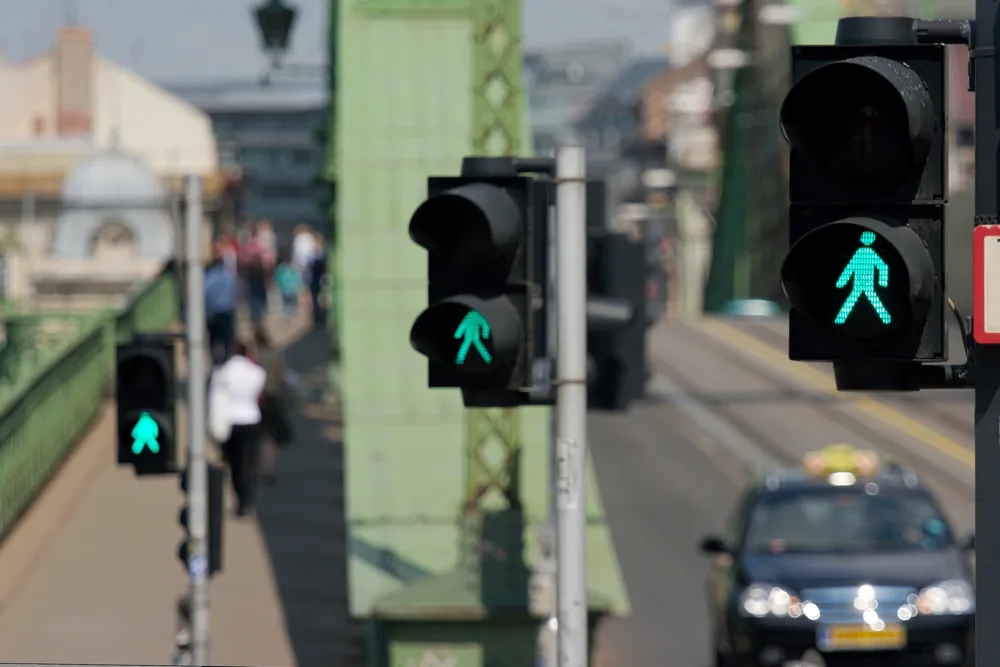The Dutch are planning a new generation of smart roads that glow in the dark, to be phased in next year. Developed by Studio Roosegaarde and infrastructure management group Heijmans, the Smart Highway by won Best Future Concept at the Dutch Design Awards, and features road markings painted with a luminescent powder that charges up in sunlight and shines through the night. The new surfaces also include markings that become visible at certain temperatures, such as a snowflake symbol that appears in freezing
November 6, 2012
Read time: 2 mins
The Dutch are planning a new generation of smart roads that glow in the dark, to be phased in next year. Developed by 6835 Studio Roosegaarde and infrastructure management group 6836 Heijmans, the Smart Highway by won Best Future Concept at the Dutch Design Awards, and features road markings painted with a luminescent powder that charges up in sunlight and shines through the night.
The new surfaces also include markings that become visible at certain temperatures, such as a snowflake symbol that appears in freezing conditions to warn drivers of slippery roads. The new roads aim to improve safety and cut energy use from road lighting.
The idea is to not only use more sustainable methods of illuminating major roads, thus making them safer and more efficient, but to rethink the design of highways at the same time as we continue to rethink vehicle design. As Studio Roosegaarde sees it, connected cars and internal navigation systems linked up to the traffic news represent just one half of our future road management systems -- roads need to fill their end of the bargain and become intelligent, useful drivers of information too.
The first test lanes of smart road will be installed in the province of Brabant in mid-2013, followed by priority induction lanes for electric vehicles, interactive lights that switch on as cars pass and wind-powered lights within the next five years.
The new surfaces also include markings that become visible at certain temperatures, such as a snowflake symbol that appears in freezing conditions to warn drivers of slippery roads. The new roads aim to improve safety and cut energy use from road lighting.
The idea is to not only use more sustainable methods of illuminating major roads, thus making them safer and more efficient, but to rethink the design of highways at the same time as we continue to rethink vehicle design. As Studio Roosegaarde sees it, connected cars and internal navigation systems linked up to the traffic news represent just one half of our future road management systems -- roads need to fill their end of the bargain and become intelligent, useful drivers of information too.
The first test lanes of smart road will be installed in the province of Brabant in mid-2013, followed by priority induction lanes for electric vehicles, interactive lights that switch on as cars pass and wind-powered lights within the next five years.









